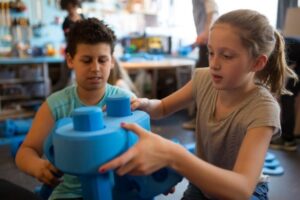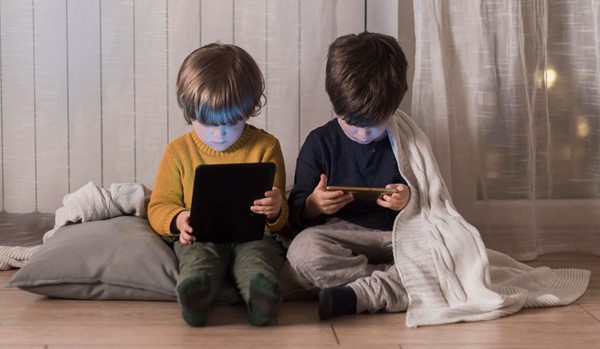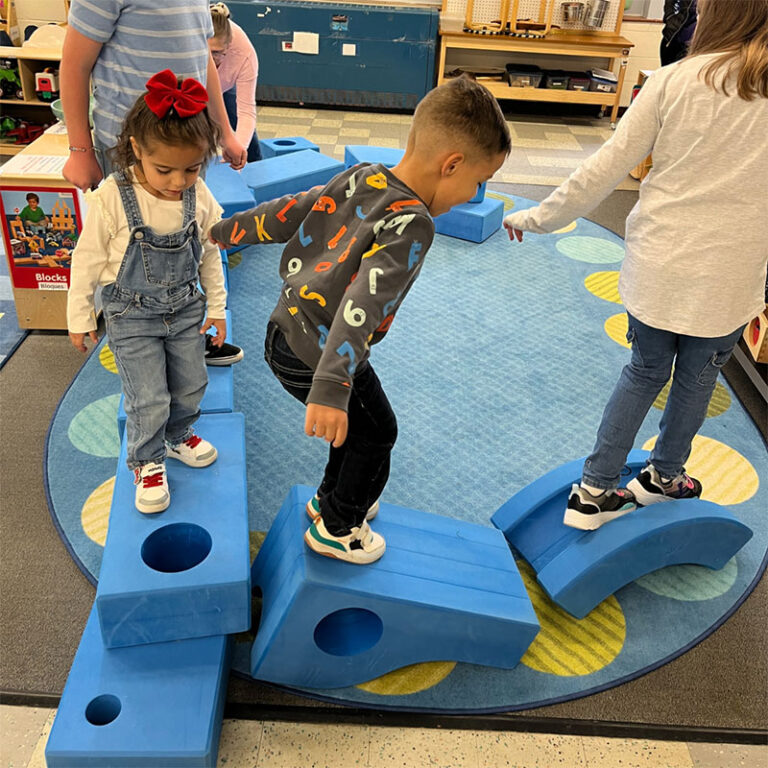More than you may know!
By Nicole Leuci Gilmer
“Play allows children to use their creativity while developing their imagination, dexterity, and physical, cognitive, and emotional strength.” -American Association of Pediatrics
Play is the greatest teaching tool available to children with more benefits than you may know! Here are just a few scientifically proven reasons why play is important!
 Empathy
Empathy
When children play together, they are exposed to an abundance of social skills, such as empathy. As builders encourage each other, practice self-control, and learn to respect one another, they mold their empathy skills.
 Logic
Logic
Play promotes brain health, growth, and development for people of all ages, but especially in adolescents. Through play, children observe and learn from the world around them, and the act of playing also changes the connection of the neurons in their prefrontal cortex. These neuron changes play a critical role in developing emotional regulation and problem-solving skills. Furthermore, when playing with peers, new brain circuits are established that introduce life skills on navigating complex social situations.
 Creativity
Creativity
Utilizing various loose-parts in playtime can support a child’s self-expression and imaginative thoughts. In one research study, children who actively played for at least one hour per day found improvements in their ability to think creatively and multitask (Mather & Anderson, 1999).
Having a creative venue to play expressively is essential to a child’s self-esteem, development, and psychological wellness.
 Communication
Communication
When working with loose-parts, children are forced to articulate a vision, defend their ideas, and be able to give and take instruction. To effectively accomplish this, they will search for new language and vocabulary to express themselves. In one study, preschool-age children were given blocks to independently play with at home every day. After a six-month evaluation, the children, particularly those living in low-income households, showed great improvements in language acquisition (Christakis et al, 2007).
These are just the tip of the iceberg in terms of why play is incredibly impactful to the overall development of adolescents and the foundation of lifelong learning. So, make sure the kiddos in your life (and yourself!) have an opportunity to play each day to take advantage of the numerous benefits of play!
Until next time, BUILD ON!
Sources:
Christakis DA, Zimmerman FJ, Garrison MM. Effect of Block Play on Language Acquisition and Attention
in Toddlers: A Pilot Randomized Controlled Trial. Arch Pediatr Adolesc Med. 2007;161(10):967–
- doi:10.1001/archpedi.161.10.967
Mather, J. A., & Anderson, R. C. (1999). Exploration, play and habituation in octopuses (Octopus
dofleini). Journal of Comparative Psychology, 113(3), 333–338. https://doi.org/10.1037/0735- 7036.113.3.333









